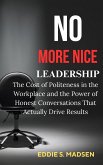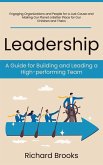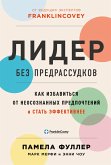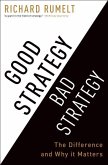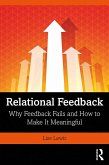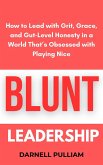High-performing teams don't happen by accident. They are built through intentional conversations, honest feedback, and mutual respect. They are fueled by a kind of emotional intelligence that doesn't flinch when it's time to say the uncomfortable thing. Colby D. Hurd's philosophy is clear: candor is not cruelty, and empathy is not softness. When the two are balanced, something powerful happens-people grow, accountability strengthens, and performance skyrockets.
This isn't a book about buzzwords. It's not a celebration of "radical candor" or the latest management fad. It's a blueprint for the teams that are going to outlast the noise. The companies that will win the next decade are the ones that know how to build honest, safe, results-driven cultures without turning their people into robots or their managers into therapists.
You don't need another meeting where everyone agrees and nothing changes. You need psychological safety that doesn't coddle. You need standards that aren't flexible based on mood. And most of all, you need a language that allows people to speak the truth-without burning the bridge. That language begins with clarity. Clarity about roles, clarity about boundaries, clarity about what is and isn't working.
Inside, you'll find practical tools for giving feedback that lands, not just lectures. You'll learn how to set expectations that actually get followed. You'll see how to create a culture where performance and compassion don't cancel each other out. There are scripts, frameworks, and tactics-but more importantly, there are mindset shifts. Because building a great team doesn't start with fixing others. It starts with owning your own clarity, your own emotional discipline, your own ability to be both firm and kind without compromising either.
Blunt but Kind isn't a soft read. It demands reflection. It asks leaders to stop outsourcing emotional labor to HR. It challenges teams to grow up without losing heart. There's no room here for passive-aggressive silence or exaggerated positivity. The leaders who adopt this approach aren't loud or overbearing. They're clear, consistent, and grounded in respect. They know that kindness without truth is manipulation. And truth without kindness is laziness.
If you've ever walked out of a meeting unsure what just happened, this book shows you why. If you've ever given feedback that backfired, it explains where you went wrong. If you've ever felt emotionally drained by a "team" that functions more like a group project gone wrong, you'll understand what was missing-and how to fix it.
Colby D. Hurd doesn't preach theory. He teaches pattern recognition. What does it actually look like when a team is working? What do they say when things go wrong? How do they disagree? How do they repair trust after missteps? This book is full of moments like these-those little hinges that swing big doors. It doesn't promise easy fixes. But it does offer clarity where confusion reigns.
After reading Blunt but Kind, readers will walk away with more than insights-they'll have tools. Tools for re-centering their team around shared values. Tools for rebuilding broken trust. Tools for drawing the line between support and enabling. They'll know how to structure one-on-ones that matter, run meetings that don't waste time, and deliver feedback that invites improvement instead of triggering shame.
Dieser Download kann aus rechtlichen Gründen nur mit Rechnungsadresse in A, B, CY, CZ, D, DK, EW, E, FIN, F, GR, H, IRL, I, LT, L, LR, M, NL, PL, P, R, S, SLO, SK ausgeliefert werden.



